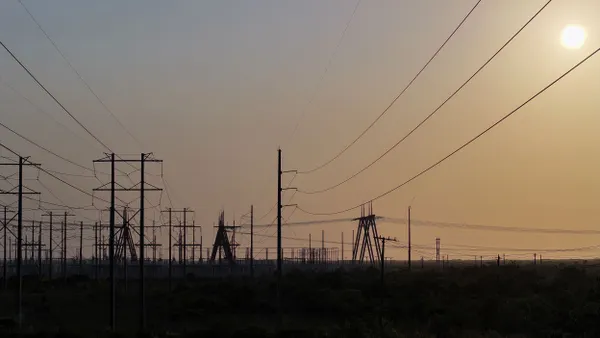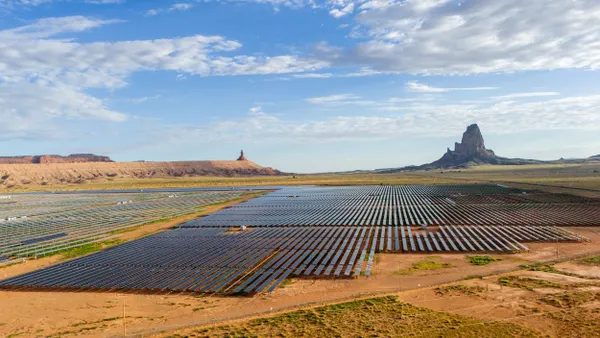The post has been updated to reflect that Trump signed the GOP tax overhaul on Friday.
Dive Brief:
- President Donald Trump signed a corporate tax overhaul on Friday after the U.S. Congress gave its final approval earlier this week, the New York Times reports.
- The House passed a final version of the bill on Tuesday, reconciling minor changes from a version that passed both it and the Senate the night before.
- The final version of the bill is expected to spur capital deployment from utilities by allowing them to deduct interest expenses from their taxes, as well as capital expenditures in the first year. The bill also includes a fix to the so-called BEAT provision that industry worried could "devastate" renewable energy.
Dive Insight:
In Washington terms, the Republican tax bill came together at warp speed.
The GOP only turned its attention to a tax overhaul this autumn after multiple failed attempts to repeal Obamacare. Republican lawmakers crafted the bill largely behind closed doors, with the final version released in the evening on Friday.
Electric utilities supported the push for lower corporate tax rates from the start, but renewable energy companies were startled by the unexpected inclusion of the Base Erosion Anti-Abuse Tax (BEAT) provision, added on Thanksgiving eve shortly before the bill passed the Senate.
The BEAT provision aims to close a loophole multinational corporations often use to reduce their tax bills by setting a minimum tax on corporate income. Originally, it required every company to quantify 10% of their taxable income, including cross-border payments and, in a second calculation, quantify their tax liability. If the tax liability is less than the taxable income calculation, the government would collect the difference as a tax.
Under that text, wind and solar tax credits could reduce a corporation's tax liability, increasing their tax bills. Renewable energy groups said that could push banks out of the tax equity market, stifling as much as $12 billion in financing.
The final bill aims to avoid that by allowing companies to offset up to 80% of BEAT tax payments accrued due to energy tax credits. That will help avert the worst impacts of the provision, said Gregory Wetstone, president and CEO of the American Council on Renewable Energy (ACORE), but it could still reduce some financing.
"[W]e are uncertain how the marketplace will react to the fact that more multinational firms may now be covered by the BEAT, and tax credits may not all be useable in any given year," he said.
Under the current text, the 80% offset provision for BEAT expires in 2025. That could stifle investment in wind generation, as those projects receive tax credits for producing power for a decade after they are put in service.
"New wind projects have the option of selected a single year investment tax credit," Wetstone said via email, "but that too will involve a loss in value."
The lower rate will affect utilities in other ways. Today power rates are set on the assumption that companies will pay a 35% tax rate, Kavulla said, but various deductions allow utilities to pay less upfront, allowing utilities to realize “early-year cash benefits even if it means liability in later years.”
Today, those future liabilities are based on a 35% corporate tax rate, but lowering that rate would mean utilities would have to pay less than they planned. That difference is owed to customers but could be used to offset infrastructure costs.
“Basically, Uncle Sam and customers have been fronting [utilities] extra cash for infrastructure in the early years,” Kavulla said. “That bill eventually becomes due, but because you’re changing the tax rate midstream, what’s due to customers [in refunds or infrastructure spending] has actually increased.”
Critics of the tax bill argue corporations are more likely to return funds to shareholders, rather than making direct investments. While that “may be the case in the wider economy,” Kavulla said, “regulators, if they’re paying any attention at all, are not going to allow that."
The final tax bill was least friendly to nuclear energy and a variety of smaller energy technologies, which all saw their tax credits left out of the legislation. Sen. Lisa Murkowski (R-AK), told Utility Dive that those resources may be addressed in a separate tax extenders package next year.
"Don't panic," she said. "There is a path forward for all of that."
This post has been updated to reflect that President Trump may not sign the bill until next year.












